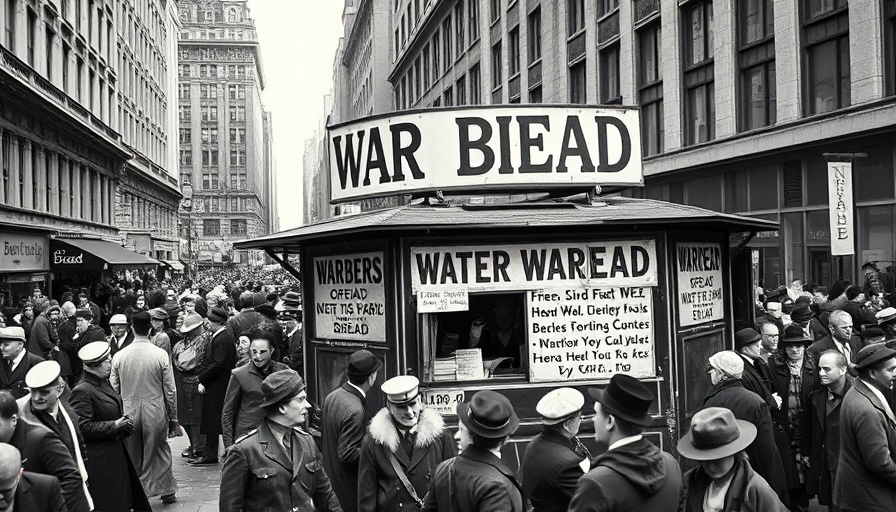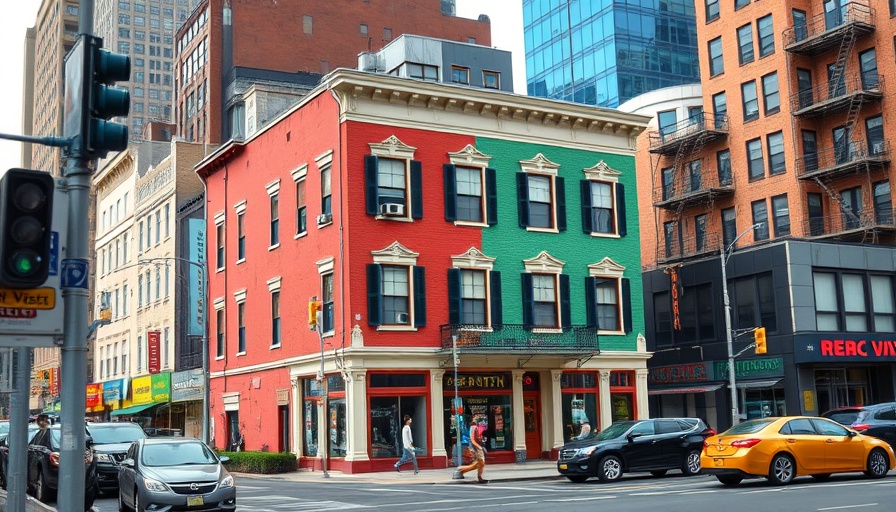
A Historical Look at Wheat Conservation in New York
In the early 20th century, amid the looming shadow of World War I, a notable wheat conservation campaign emerged in New York City, branded as the "war bread" initiative. This movement not only aimed to conserve resources but also instilled a sense of national pride, as the slogan "Food Will Win the War" resonated with the American public. The United States Food Administration, led by Herbert Hoover, ingeniously turned wheat conservation into a patriotic act, urging citizens to rethink their consumption habits for the greater good.
From Complacency to Action: New Yorkers Answer the Call
The implementation of wheatless menus across restaurants, including the notable Macy’s, was symbolic of this movement. Diners encountered various creative alternatives to wheat, such as corn and rye products. This restructuring of menus not only served to conserve wheat for troops abroad but also reflected the societal pivoting towards a more collective identity during wartime. New Yorkers rose to the occasion, embracing the wartime lifestyle with unique meals that were economical and conscientious.
Wheatless Menus: A Modern Paradox
Fast forward to today, and the concept of wheatless meals has taken on a new facade. As health trends shift towards gluten-free and whole grain options, the historical perceptions of wheatless dining offer a fascinating contrast. What once was a necessity, driven by shortages, is now a culinary choice for many, as restaurants rebrand these old traditions as modern health solutions. This ironic twist highlights society’s evolving attitudes towards food consumption.
Lessons Learned: The Value of Resource Conservation
The wartime message of minimizing waste resonates in today’s conversations about sustainability and food waste. The practice of conserving wheat during critical times teaches us important lessons about resource management and collective responsibility. Whether for health reasons or food scarcity, understanding the past empowers consumers today to make informed choices about what they eat and how it impacts the environment.
An Invitation to Reflect on Our Eating Habits
As we ponder the significance of past initiatives like the "war bread" campaign, we are reminded of the importance of being aware of our own eating habits and the cultural significance of food choices. There's a rich history behind every bite we take—one that reflects broader societal values we often overlook in our modern, convenience-driven lives. We encourage readers to explore local menus and find inspiration in historical dining practices that evoke sustainability, community, and a sense of belonging.
While the war bread campaign is a reflection of a bygone era, the principles of conservation and thoughtful consumption remain relevant. Consider how food choices affect not just your health, but also the welfare of your community and the world. Embrace creative dining options that sustain resources rather than deplete them and find ways to make a difference—one meal at a time.
 Add Row
Add Row  Add Element
Add Element 



 Add Row
Add Row  Add
Add 
Write A Comment